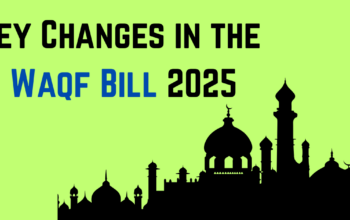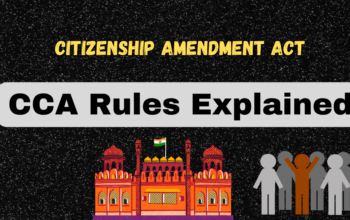The Citizenship Amendment Act (CAA) has been a focal point of discussions and debates since its enactment in December 2019. Aimed at safeguarding individuals facing religious persecution, the act brings forth significant changes to the citizenship application process in India.
In this article, we delve into the key aspects of the CAA, addressing its objectives, eligibility criteria, and the ensuing controversies.
Understanding the CAA:
The primary objective of the Citizenship Amendment Act (CAA) is to provide a protective shield for individuals seeking refuge in India due to religious persecution in neighboring countries. To qualify for citizenship, applicants must have entered India on or before December 31, 2014. This amendment introduces a noteworthy provision for the cancellation of Overseas Citizen of India (OCI) registration in case of violations of the Citizenship Act or other applicable laws.
Also read, Citizenship Amendment Act (CAA) Rules Explained – From Eligibility to Obtaining Citizenship
Exclusion and Controversies:
Critics argue that the CAA is discriminatory, particularly targeting Muslims, constituting around 15% of India’s population. The government contends that Muslims cannot be considered persecuted minorities as Pakistan, Afghanistan, and Bangladesh are Islamic republics with a Muslim majority. The law assures a case-by-case review for applications from other communities, emphasizing its non-discriminatory nature.
Application Process:
The Ministry of Home Affairs has streamlined the citizenship application process by introducing an online portal. Applicants are required to disclose the year of entry into India without necessitating the submission of additional documents. This digital approach aims to enhance efficiency and convenience for those seeking Indian citizenship.
Here is the link to apply – https://indiancitizenshiponline.nic.in
Opposition’s Concerns:
Since its enactment, the CAA has been met with opposition and protests, with various political parties labeling it as “discriminatory.” The Congress party, in particular, has raised concerns about the timing of the rule notification, alleging political motives to influence upcoming elections in West Bengal and Assam. This opposition adds layers of complexity to the ongoing discussions surrounding the act.
Estimating Citizenship Numbers:
While no precise figures have been provided, the Ministry of Home Affairs’ annual report for 2021-22 reveals that 1,414 foreigners belonging to non-Muslim minority communities from Pakistan, Bangladesh, and Afghanistan were granted Indian citizenship. This was achieved through registration or naturalization under the Citizenship Act, 1955, in nine states: Gujarat, Rajasthan, Chhattisgarh, Haryana, Punjab, Madhya Pradesh, Uttar Pradesh, Delhi, and Maharashtra.
Conclusion:
The Citizenship Amendment Act (CAA) has become a pivotal aspect of contemporary Indian political discourse. Its provisions, objectives, and controversies shape the narrative around the evolving landscape of citizenship in the country. As discussions continue, understanding the CAA’s intricacies is crucial for navigating the nuanced perspectives that surround this significant legal development.



